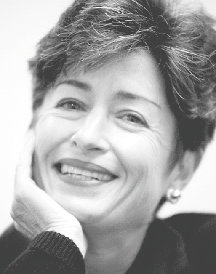Keeping two sets of books, so to speak
"It is not that there are no certainties, it is that there is an absolute certainty that there are no certainties,” writes Christopher Hitchens in his memoir, “Hitch 22.” As I read the last pages of this movable feast of a book, that thought, in particular, resonates.
The author, a political and social provocateur, dazzling essayist and — what else can you call him? — public intellectual, was referring to the ways in which his thinking and opinions have shifted over the years.
English by birth and American by choice, Hitchens writes nostalgically of his early days at Oxford as a Marxist and Trotskyite: the dozens of rallies, the missions to uplift downtrodden people from Cuba to South Africa, the essays and articles espousing Marxist theory and ideology. He devoted his life and his work to leftist causes. He was a true believer. But history intervened.
One hesitates to distill decades of intellectual evolution, but Hitchens found himself, in the 1990s and especially after 9/11, moving to the political right, specifically on issues of security and the war on terror. He says he coined the term Islamofascist to describe the emerging radical fringe of Islam. In particular, he supported the invasion of Iraq, decrying the Saddam Hussein regime as dark, savage and evil. WMD was not an issue central to his argument. Saddam had to go.
Hitchens was somewhat surprised to find himself a hawk among the doves, but he explained his intellectual and moral shifts as a kind of keeping two sets of books, holding two opposing views at once and accepting the idea that, as Flaubert said, “Contradiction is what keeps sanity in place.”
The reason this resonated so powerfully with me last week was the decision by a jury in Connecticut to sentence Steven Hayes to death. He is the man, who, with an alleged accomplice yet to be tried, invaded the home of a family, brutally beat the husband, sexually assaulted and strangled his wife, then tied their two young daughters to their beds and set fire to the house, killing all three. Only the husband survived.
After a lifetime of opposing the death penalty, I am glad Steven Hayes was sentenced to death, and had I been on the jury, I would have voted that way. He is one of those abominations of nature best obliterated from the earth.
Admittedly, I am keeping two sets of books on this issue; however it was reassuring to be reading “Hitch 22” at the time and to realize that others with deeply held convictions sometimes find those beliefs evolving. Embracing contradiction is liberating, too, I think. We needn’t cling to rigid ideas when education and life experience offer facts to the contrary.
Hitchens also veered from the left with his support of waterboarding as an “enhanced interrogation” technique — that is, until he volunteered to be waterboarded and decided that if getting strapped to a board and having water poured into your nose and mouth wasn’t torture, then nothing was. And so he changed his mind again.
What has not changed is Hitchens’s abhorrence of religion and faith. An avowed — no, an ardent — atheist, he has written numerous volumes on the evils of religion, skewering nearly every beloved symbol of piety, from Mother Theresa to Ayatollah Khomeini, from the Vatican to Jerusalem, from Moses to Muhammad.
Through the years, his antipathy toward religion has raged unabated — although he was thrown into conflict in 1987 when he learned that his mother was Jewish. She had kept her background a secret so that he might have better social and educational opportunities as a schoolboy in England.
Being Christopher Hitchens, he launched an extended search for his mother’s parents’ birthplace in Poland and considered the ramifications of his newfound heritage. As he writes, by at least three religious dictates (none of which he believes in), including Israel’s law of return, he is Jewish. He seems drawn to that legacy, not out of any religious commitment, but because he somewhat identifies with what a friend of his describes as a “seismic” people.
As life would have it, Mr. Hitchens has been thrown a curve ball. He is dying of esophageal cancer and writes that he would be lucky to live another few years. The news has stirred a debate, with people wondering if he will indeed be that atheist in a foxhole. He graciously accepts others’ prayers, if one has the “need” to pray.
He adds, though, that the thought that he would embrace religion at this moment is reprehensible to him. Hitchens is, after all, the author of the best-selling book “God is Not Great” — a title that contains one word too many, his friend Salman Rushdie says, with more than a little irony.
Copyright © 2010 Randi Kreiss. Randi can be reached at randik3@aol.com or (516) 569-4000 ext. 304.

 50.0°,
Overcast
50.0°,
Overcast 




